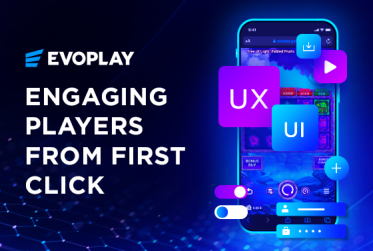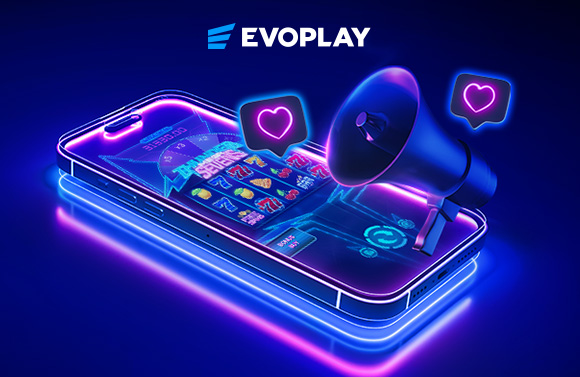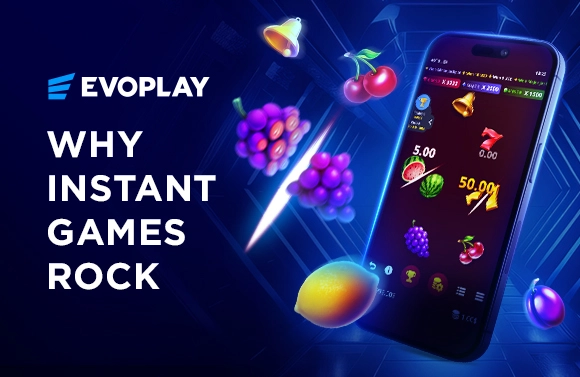People will be people. Our enjoyment of entertainment is deeply rooted in the emotional connections we form with the content. When we watch a hyped-up Netflix movie, listen to music on Spotify, or play a game, our brains release neurotransmitters like dopamine and serotonin, reinforcing positive emotions. These emotional bonds influence our preferences and perceptions.
In gaming, these bonds mainly stem from the attachment players develop towards the characters they control, empathising with their struggles and victories. The emotional investment in a game’s narrative arc further strengthens this connection as players become attached to the outcome.
/We’ve long had a tradition of empathising with characters in various visual media like film, television, and live drama.
(Sheldon, 2004)/
It’s the answer to why video games, where storytelling with characters is core, are a significant source of inspiration for online gambling products. By incorporating microcosms, capitalising on players’ natural inclination towards emotions and affectional drive, iGaming developers can offer a stark contrast to traditional casino content lacking depth.
Personalisation in games fosters this emotional connection, allowing players to tailor experiences to their individual preferences, making them feel understood and valued, thus deepening their engagement.
In Evoplay’s flagship 3D street racing game, Adrenaline Rush, we’ve tapped into the art of personalisation to the fullest extent possible for an iGaming product. Here are the key insights we’ve gained on how it can help our partners drive engagement and retention.
Theories that work
It’s pretty mind-blowing when you consider how much science and its theories are behind entertainment. Have you ever wondered why some games completely captivate us, whisking us away into their worlds without a second thought, while others barely hold our interest?
When we talk about games and their characters, that’s where parasocial theory really comes into play.
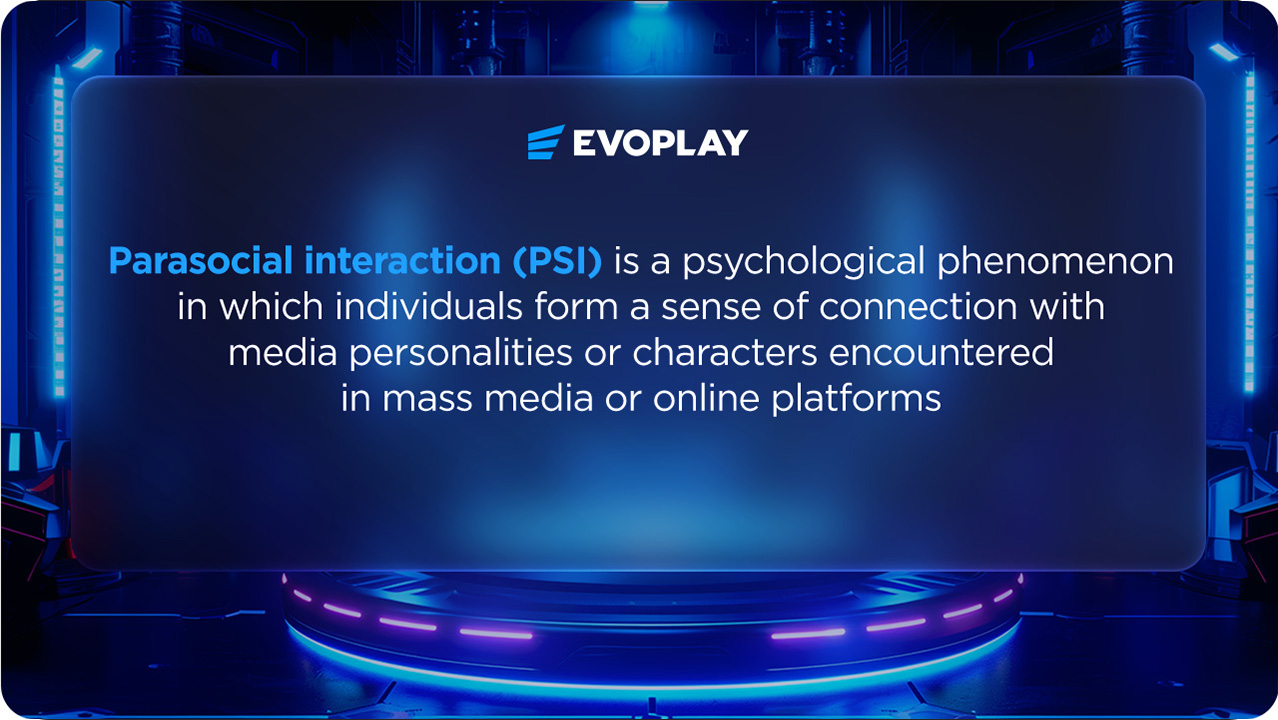
Parasocial interaction (PSI) is a psychological phenomenon in which individuals form a sense of connection with media personalities or characters encountered in mass media or online platforms.
In games, players often form a unique bond with characters, seeing them as their “digital pals,” which really enhances that feeling of companionship. And this is precisely why iGaming titles featuring characters tend to become players’ favourites more easily.
In our game, Adrenaline Rush, we’ve introduced 3 characters for players to pick from – each with their own captivating backstory. There’s Deathless, the daring stuntman with loads of confidence, then there’s Akemi, who’s all about sticking to her principles no matter what, and Clean Sean, the go-getter who’s always striving for success. With such a lineup of characters, it’s like having a bunch of friends to choose from with whom you want to share your best racing experience ever, right?
Another way to look at it is through identification theory, which suggests that players develop connections with characters they relate to on a personal level. This connection often arises from shared experiences, values, or dreams.
/Role-playing games are unmistakable. They have evolved from the MUDs and text-based MMORPGs of yesteryear.
(Oxland, 2004)/
When you play a role-playing game as a specific character, it’s like you become them. Players really get into it, and suddenly, the mission feels personal. They find themselves cheering for their own success. Stepping into another persona makes the experience immersive. This personal connection fosters heightened engagement as players become emotionally invested in their character’s journey.
In light of the research findings (Lee Sheldon, 2004), humans can deeply empathise with fictional characters, experiencing their emotions as if they were their own.
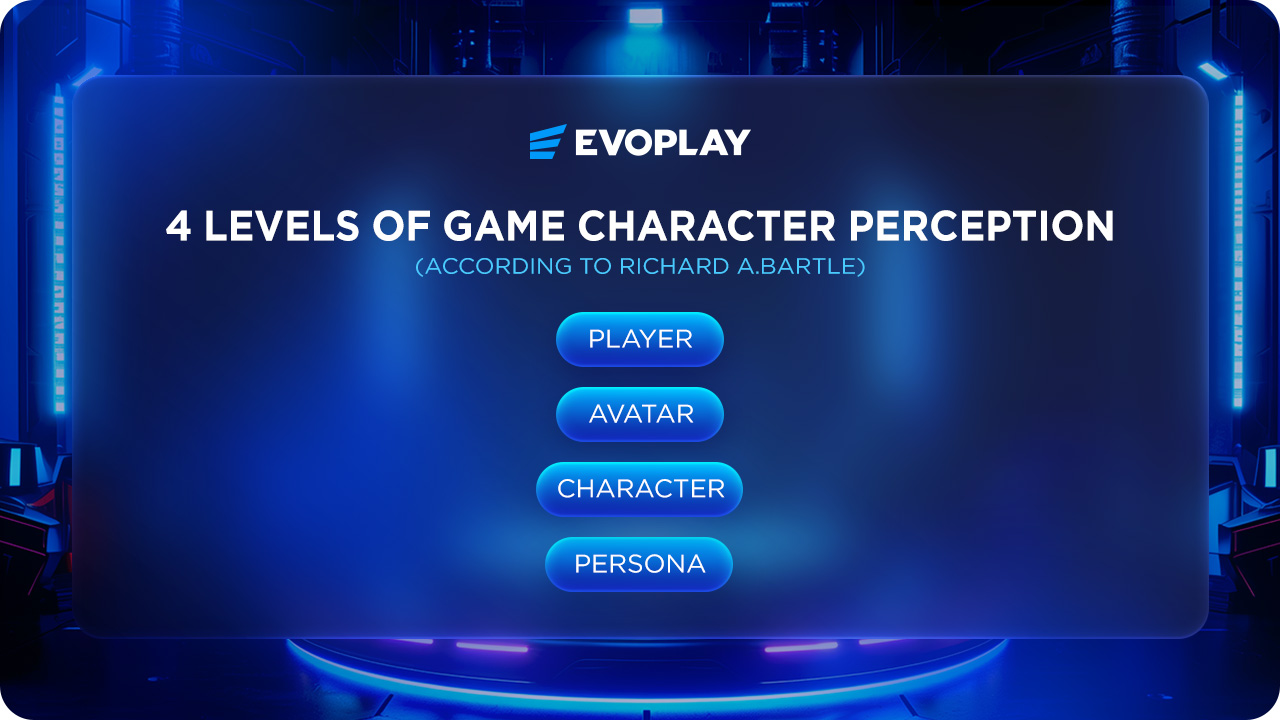
According to Richard Bartle, a game researcher and professor, a player views the character as a tool or object to manipulate within the game world. However, when the player starts to develop a sense of attachment or emotion towards the controlled entity, it transcends being merely an object and becomes an “avatar.” The next level is the “character,” and when it starts to represent the player, it leads to the deepest form of involvement, known as the “persona.”
The pinnacle of immersion in gaming occurs when players fully embody their character, reaching a state of persona where they genuinely feel like they are living through the experiences of the character they’re playing.
This is where the skill-based games really shine. In Adrenaline Rush, players are in control of their cars, naturally adopting the driving style of the character they’ve chosen. What’s more, their character can evolve as they master their driving skills in the game. From a gameplay perspective, think of it like this: the game uses RNG, setting the maximum potential RTP, but your driving skills make the difference in where you end up in the race. So, the better you drive, the sweeter the rewards at the finish line!
In the realm of the iGaming business, the connection between players’ attachment to characters is straightforward: emotional bond leads to immersion, which in turn boosts engagement, ultimately resulting in increased casino revenue.
Give them a story, and they’ll see themselves in it
Developing characters in games involves ensuring they grow organically throughout the gameplay experience within their world. They crave narrative, a journey that shapes who they are, forging deeper connections with the player along the way.
As stated above, studies have proved that when immersed in a virtual world, players often form a strong connection with their in-game character, sometimes even imagining themselves as that character.
In Adrenaline Rush, we’ve created a 3D universe of street racing. It is a true testament to #motorcore, spreading like wildfire across diverse realms, from gaming to fashion. And with Formula 1 getting super popular and everyone binge-watching the Formula 1: Drive to Survive docuseries, this vibe is hitting online gaming big time too.
Adrenaline Rush offers a high-octane experience complete with 3 maps to explore. Players are tearing through the streets of the sleepy night city Riverside, blazing across the desert in Maldito Camino, or navigating the bustling streets of enchanting China Town. It’s not the destination but the journey that matters.
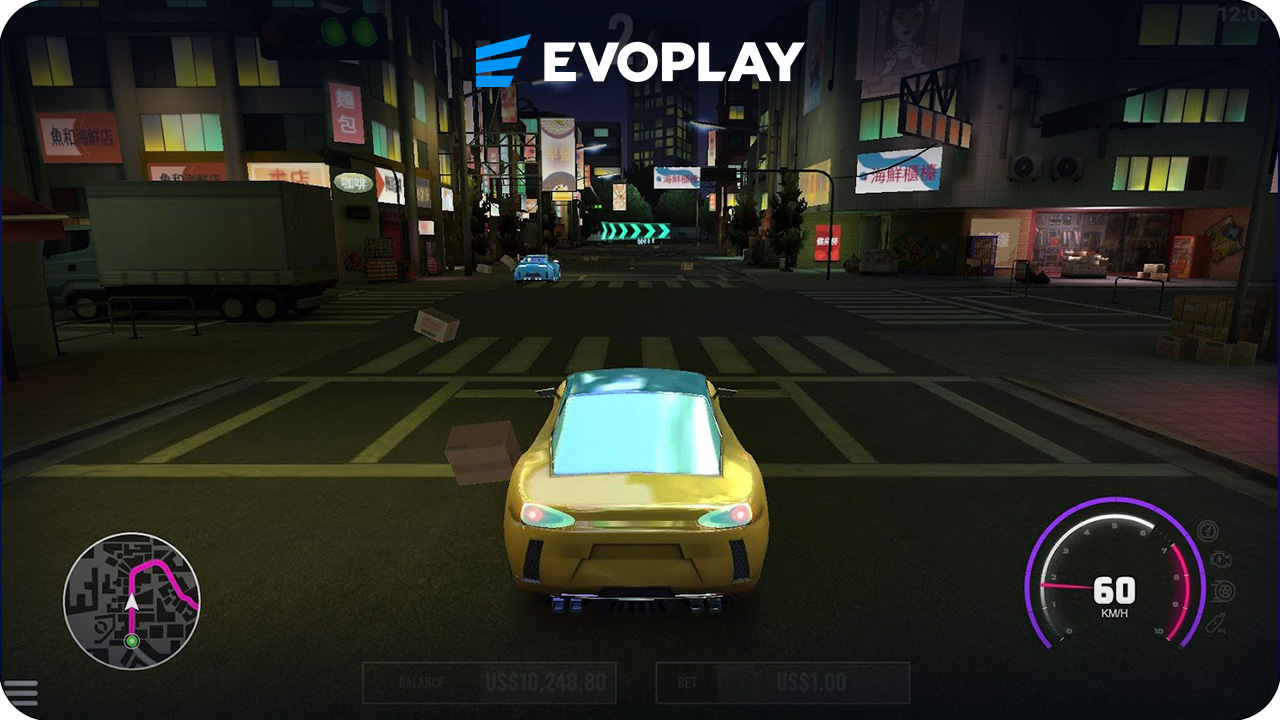
In Adrenaline Rush, the ability to choose from various maps makes players feel like their decisions matter. It adds a personal touch and emphasises the significance of their choices, creating a stronger connection with the game.
Don’t overlook the fact that Adrenaline Rush is all about racing, so the cars are the main focus as well. Each character has their own set of vehicles to pick from, for example, Clean Sean’s Blue Dream, Akemi’s Golden Bird, or Deathless’s Hurricane. These cars have real-life specifications, just like the ones you’d find on the road.
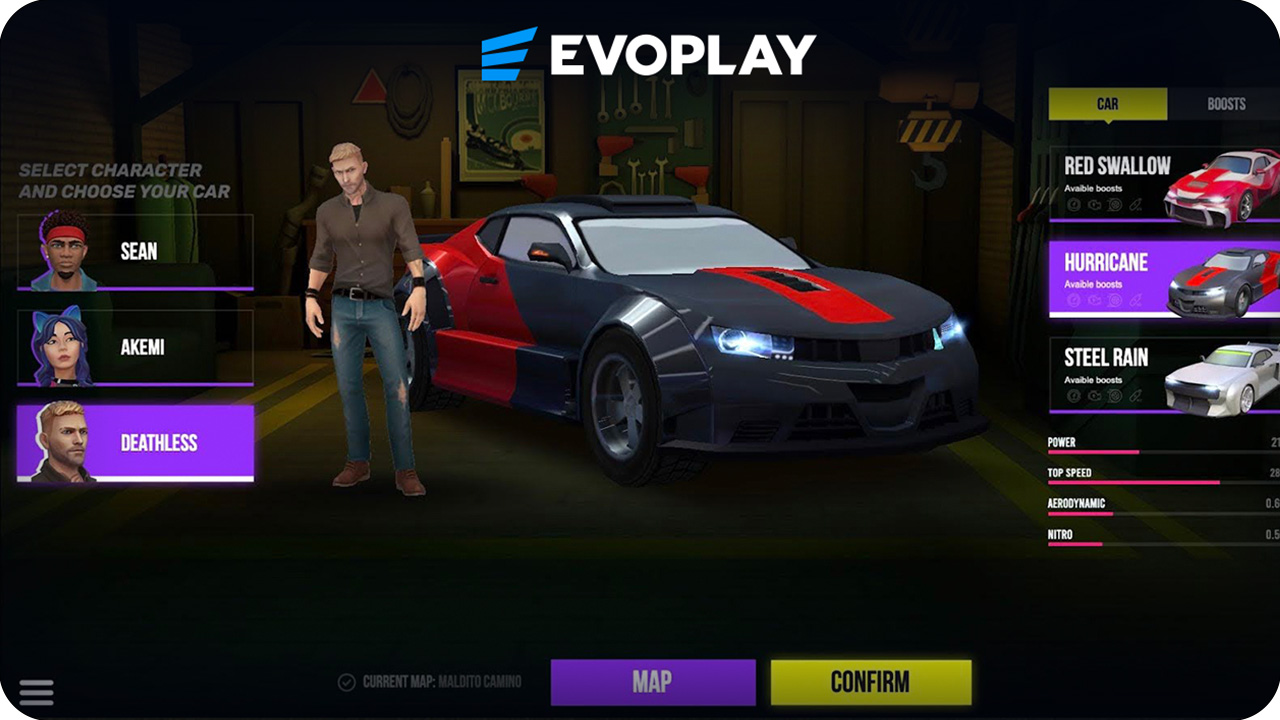
/Using storytelling to shape how players experience the game’s narrative, characters, world, and lore and ultimately evoke emotional responses from players is often referred to as “emotioneering.”
(Freeman, 2003)/
David Freeman coined the term “emotioneering,” combining “engineer” and “emotion,” to propose that designers can shape emotions within games. The aim of emotioneering is to guide players through a series of interconnected emotional encounters, crafting a meaningful experience.
And here’s where features enhance the title’s story, driving its development. In addition to picking up coins with multipliers, which again demands feeling confident at the wheel, players also collect boosters. These boosters basically become linked to a player’s character. Then, in the next round, players can use them to boost up their car. They can adjust things like how fast your car can go, how it performs, its aerodynamics, and nitro, thereby increasing winning opportunities.
Levelling up in all its appearances consistently ranks among the top 5 features players crave in any gaming experience. Being able to enhance their cars and thus directly impact their character’s fate is a game-changer for player retention. It’s about players feeling the tangible results of their investment as they strive to make their mark in the game and secure victory.
/Understanding the elements that keep players engaged and coming back is important to developers.
(Yee, 2006)/
When players can customise their characters, upgrade vehicles, or make strategic decisions, they feel more connected to the game. This sense of connection keeps them engaged for longer periods, as they’re invested in seeing their choices pay off. For online casinos, offering games that provide freedom of choice is a great move, leading to extended play sessions and increased revenue.
The actionable tip – give your players iGaming content to take it personal(isation).























